Rachelle is an experienced online ESL teacher from South Africa. Having previously taught with companies such as PalFish and Oikid, she now teaches her own students independently. In this blog post, she shares her insights and top tips for fellow teachers using the Abridge Academy lessons, particularly how to adapt your teaching for younger / older learners or when using non-interactive teaching platforms.
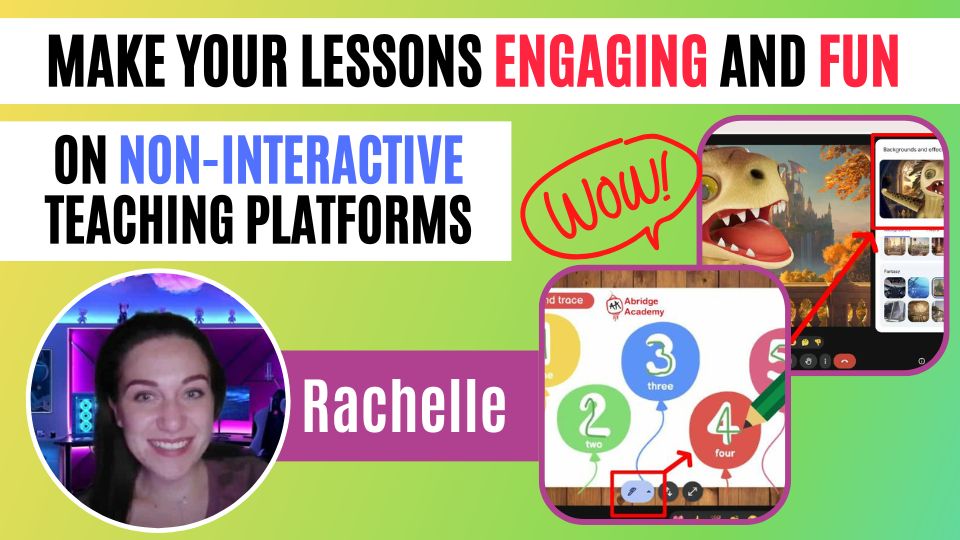
- What do you love about the Abridge Academy curriculum?
- What teaching platform do you use, and why?
- How specifically do you adapt your teaching to compensate for the lack of interactivity in Google Meet?
- You teach a wide range of students! Which Abridge Academy courses do you use the most?
- How about the supplementary resources (workbooks etc)? Do your students find those helpful?
- Summary
- Looking for more engaging online ESL teaching materials?
- Frequently Asked Questions
What do you love about the Abridge Academy curriculum?
The lessons are not just great because they are interactive, but also the fact that they are engaging and fun even without access to this interactivity too. I really enjoy teaching the Abridge Academy curriculum, which comes across in the way I present the lessons – students engage more because they see me having fun. And that alone should make teachers use the Abridge Academy curriculum!
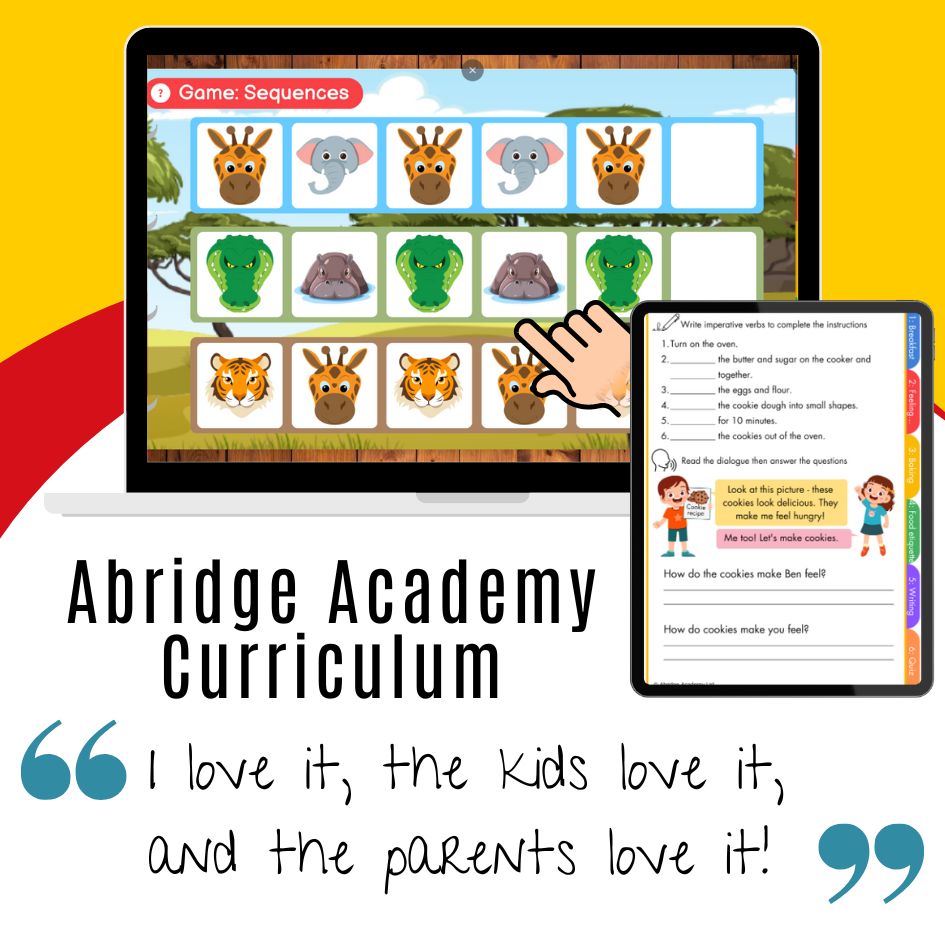
I am a big fan of Abridge Academy and the support Katie provides teachers, because now I don’t have to rely on a big company underpaying me. Little by little, in this past year I managed to gain 7 private students – which may not be a lot, but it was just through word of mouth. And it’s all because of Abridge Academy 🥰
What teaching platform do you use, and why?
I use Abridge Academy with my private students through Koala Go, but for the last three months I have also worked with an agency which requires us to use Google Meet.
Although Google Meet does not have a co-browser or mouse control function to allow students to directly interact with the slides, I use other features such as the annotation tools, the chat function, video filters, and even just pen-and-paper to keep students engaged throughout class. Many parents have complemented me on these approaches and students love our lessons!
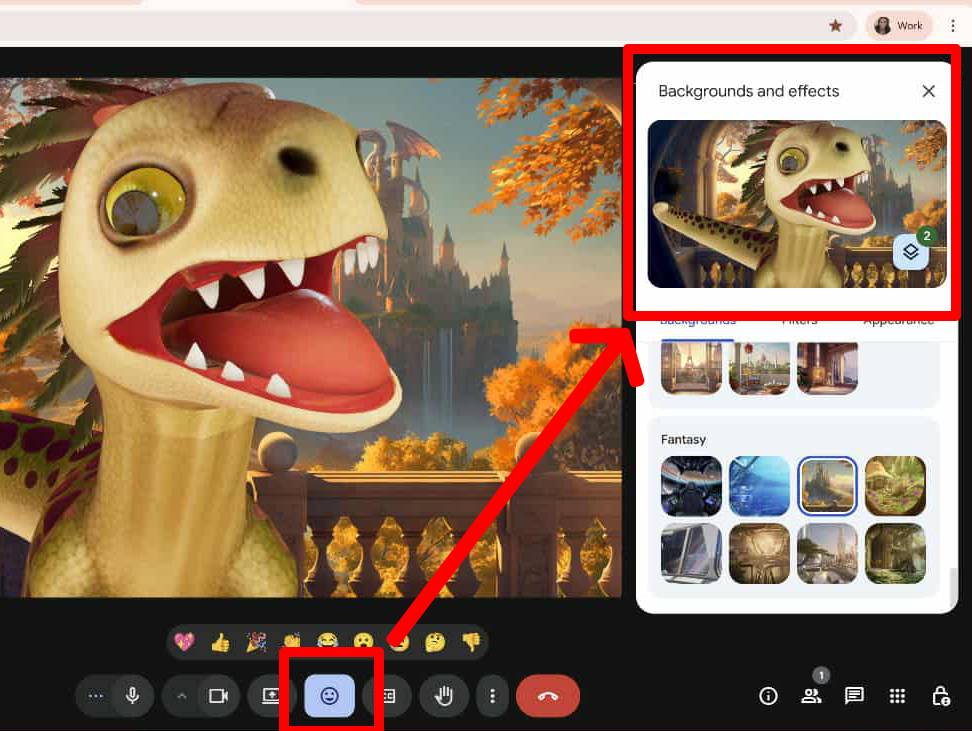
Google Meet also has filters that change your features entirely, for example, to change you into a dinosaur. This has helped me in the past with shy or distracted children, as well as for roleplay activities. It’s a game changer – the students love it!
How specifically do you adapt your teaching to compensate for the lack of interactivity in Google Meet?
I screenshare the Abridge Academy lessons within Google Meet, and do most interactions on my students’ behalf.
With younger learners, I tried having them use the annotation tools, but some find it a bit difficult to work with the pen, so instead I ask them to tell me what to do – and they love it! Basically, I just act as their “hands,” so we don’t have a problem with not being able to interact. I think they secretly love the idea of bossing the teacher around 🤣
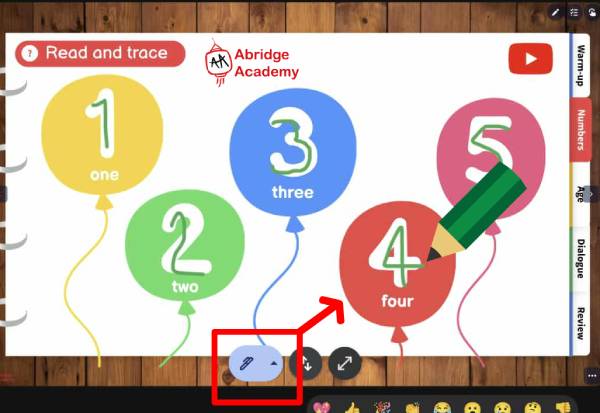
I also ask them to have a whiteboard / notepad so when we get to the slides where we practice writing letters or words, instead of drawing on the screen or typing we have a handwriting lesson. I didn’t even think it was such a big thing until that was my biggest compliment from the parents. I can actually see the student’s handwriting improve over time as well!
How could you change these instructions to compensate for a lack of direct interactivity?
With older students, they use the pen function more. I ask them to annotate with a textbox or write in the chat when they have to type the answer, and then I write it in the correct boxes for them.
I also started asking them to make notes in the chat. Many parents don’t have time to watch the whole lesson that was recorded, so they love that they can see the notes from our lessons.
You teach a wide range of students! Which Abridge Academy courses do you use the most?
I actually mix it up – for example, combining a core curriculum unit with lessons from the phonics or grammar courses, as well as a story.
A big benefit of Abridge Academy is the focus on phonics. Many schools and companies don’t teach this properly, and I can actually tell when a student did not do or maybe spend enough time on phonics before our classes. I have yet to have met a new student who did not gain from taking the phonics course.
Additionally, the Abridge Academy lessons are so amazing for my older children as well. Once they have completed the last level, we go to expansion courses. There are advanced lessons (academic writing, debating, etc) which other companies just don’t have, across a wide variety of topics that they find interesting. I am currently working with an older student who wishes to write better essays, so we are going through the non-fiction writing course.

As for individual lessons, I have to pick out the Magic School one – that was a major hit! You can see great effort was put into it, with the storyline and personalisation. I have a Harry Potter fanatic, and she freaked out over that lesson!
How about the supplementary resources (workbooks etc)? Do your students find those helpful?
I literally use everything! I send the workbook to the parents before each core curriculum unit. After each lesson in my feedback, I remind them what page they need to do in the workbook for homework. We also play the WordWall games, where available. My students love the certificates at the end of each unit.
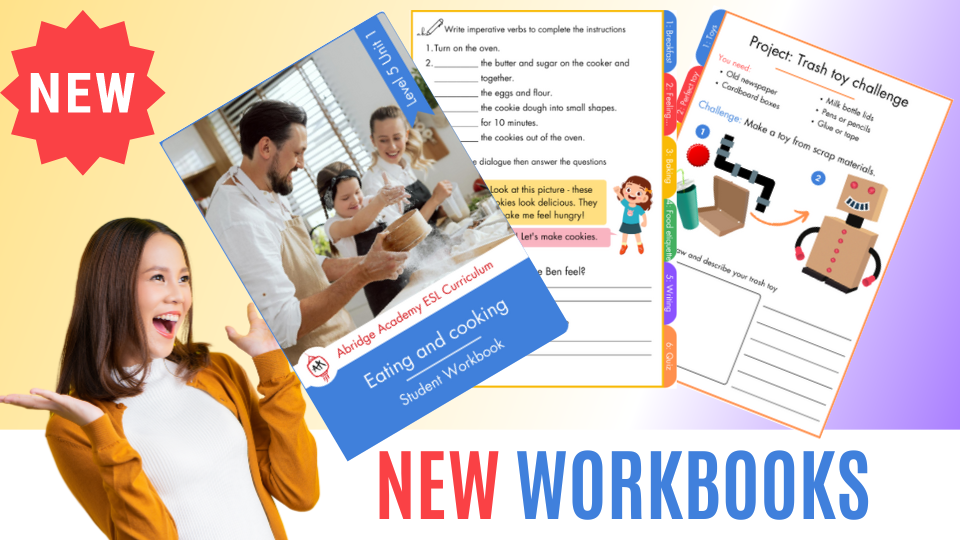
When we do stories, I use the supplementary resources for homework. It helps that there are a variety of resources as I then get to choose according to how they are doing. Some students can do the crossword as they want to be challenged, some need to work on making sentences, others use the flashcards for vocabulary practice, etc.
Summary
Thank you so much Rachelle for sharing these fantastic insights! It was particularly interesting to hear how you adapt your teaching to compensate for the lack of direct interactivity in Google Meet (and even turn this into an advantage), as well as strategies for supporting both younger and older students!
Did you find this blog post helpful? Let us know in the comments which strategy you plan to use in your next class!

Looking for more engaging online ESL teaching materials?
The Abridge Academy lessons are packed with plenty of activities and games to keep your learners engaged in class. Our structured step-by-step curriculum covers all language areas, while supplementary courses (such as debating, phonics, stories, topical reading, and academic writing) provide more focused extended practice.
🎁 FREE Placement test, trial classes, and student onboarding materials.
✅ Super interactive and engaging lessons, specifically designed for online learning.
✅ Zero prep – includes lesson slides, homework workbooks, supplementary activities, flashcards, lesson previews, and more.
✅ Suitable for beginner to advanced students (CEFR levels A1-C1), particularly kids and teens.
